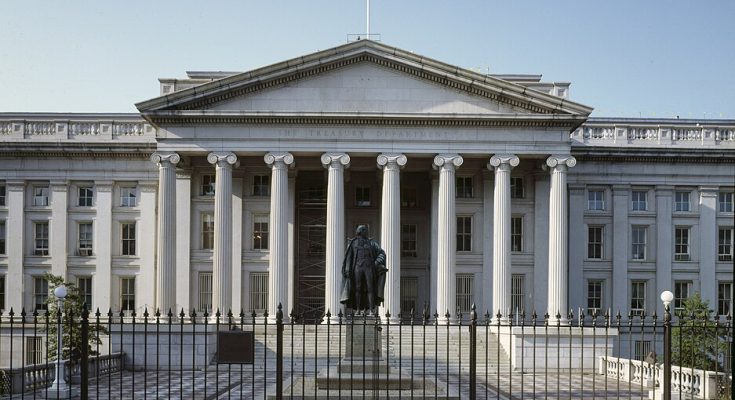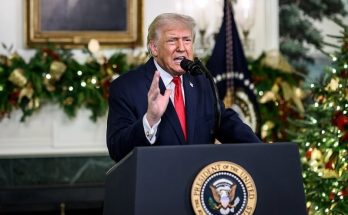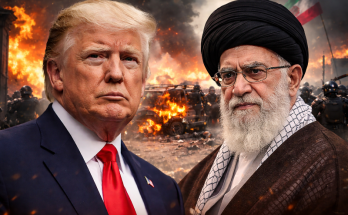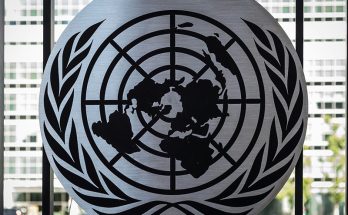#UnitedSanctions, #India, #China, #IndianCompanies, #USSanctions, #Russia
Washington/IBNS-CMEDIA: The United States announced new sanctions on Wednesday, targeting hundreds of entities in a renewed effort to prevent Russia from evading penalties imposed over its invasion of Ukraine, media reports said.
This latest move by the U.S. Treasury and State Departments sanctions on close to 400 entities and individuals across more than a dozen countries, Reuters reported citing statements from these departments.
Described as the most extensive effort against third-country sanctions evasion to date, a State Department official told Reuters that this includes numerous Chinese, Hong Kong, and Indian companies—the largest group of such firms to face sanctions in a single package.
Further, sanctions were applied to targets in Russia, the UAE, Turkey, Thailand, Malaysia, Switzerland, among other nations.
The action reflects Washington’s focus on closing avenues for Russia to circumvent sanctions imposed since its 2022 invasion of Ukraine, which has resulted in widespread casualties and destruction.
“This should send a serious message to both the governments and the private sectors of these countries that the U.S. government is committed to countering the evasion of our sanctions against Russia and to continue putting pressure on Russia to end its war in Ukraine,” said the official, speaking on condition of anonymity, according to Reuters
The U.S. Treasury Department has sanctioned 274 entities, while the State Department designated over 120, and the Commerce Department placed 40 companies and research institutions on a trade restriction list for allegedly supporting Russia’s military.
The U.S. has consistently cautioned against the supply of “Common High Priority Items”—advanced components like microelectronics—believed by the U.S. and EU to potentially support Russia’s war efforts in Ukraine.
According to a State Department official, exports of these critical items from India to Russia have increased, and scrutiny has intensified on companies facilitating such exports.
A senior U.S. administration official emphasized that Wednesday’s actions are meant as a clear warning that Indian companies could face consequences if diplomatic discussions do not yield progress.
“With India, we have been very direct and blunt with them about the concerns we have about what we see as sort of emerging trends in that country that we want to stop before they get too far down the road,” said the official, speaking on condition of anonymity.
India-based Futrevo was among the entities sanctioned by the State Department. It has been accused of supplying high-priority items to the Russian manufacturer of Orlan drones.
The Treasury sanctioned Shreya Life Sciences Private Limited, which allegedly shipped hundreds of U.S.-trademarked technology items to Russia since 2023, amounting to tens of millions of dollars.
A senior State Department official disclosed in an interview with Reuters on Tuesday that over 70% of high-priority goods reaching Russia have come from China, with exports since the war’s onset totalling more than $22 billion.
“That’s over 13 times the next largest supplier,” the official said, noting that Turkey held that position at the end of 2023.
On Wednesday, sanctions targeted Hong Kong and China-based companies involved in exporting tens of millions of dollars worth of high-priority goods to Russian entities or end-users, according to the State and Treasury Departments.
The U.S. also imposed sanctions on various organizations supporting Russia’s Arctic LNG 2 project, largely owned by Russia’s Novatek.
Initially planned to become Russia’s largest liquefied natural gas plant with an eventual output of 19.8 million metric tons per year, Arctic LNG 2 has scaled back due to U.S. sanctions beginning in 2023, with additional restrictions imposed in August and September.
However, the U.S. refrained from invoking an executive order signed by President Joe Biden last year, which threatened financial institutions aiding Russia’s sanctions evasion with penalties.
A senior administration official indicated that the banking sector had taken note of this authority and was moving toward compliance, said the report.





